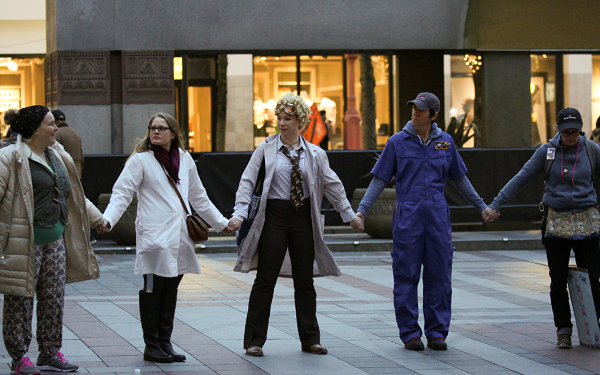What Is Women's History Month Really All About?
KEY POINTS
- March was declared National Women’s History Month in 1987
- It traces its origins back to Women’s History Week in 1978
- The month-long celebration highlights the contributions women have made since the founding of the country
March is Women's History Month -- an event that aims to celebrate and honor the contributions women have made in history and contemporary society.
Established in 1987, the month-long celebration highlights the often overlooked "contributions women have made to the United States and recognize the specific achievements women have made over the course of American history in a variety of fields," according to the Women's History Month website.
It traces its origins back to "Women’s History Week" in 1978, when the school district of Sonoma, California, held several activities to shine the spotlight on the feats of women since the founding of the country over a span of seven days, according to History.com.
These included presentations on women’s contributions to culture, history and society. Students at dozens of schools also participated in a “Real Woman” essay contest and a parade was held in downtown Santa Rosa.
The practice eventually caught on, which later prompted President Jimmy Carter in 1980 to issue the first presidential proclamation declaring the week of March 8 as National Women's History Week. Congress followed suit by passing a resolution to establish a national celebration.
By the year 1986, the National Women's History Project successfully petitioned Congress to expand the celebration to the whole month of March, and the rest is history.
One of the hallmarks of Women's History Month is Sojourner Truth -- an African-American evangelist, abolitionist and women's rights activist who became one of the world's most well-known human rights crusaders prior to her passing. Born a slave, she gained freedom in 1826 and became a Christian, vowing to spend the remainder of her life preaching about abolitionism and human rights.
On the subject of rights, Susan B. Anthony was one of the most visible leaders of the women's suffrage movement and was a champion of temperance, abolition, the rights of labor and equal pay for equal work. She served as president of the National Woman Suffrage Association and helped pave the way for the 19th Amendment, which guaranteed American women the right to vote.
Rightfully so, the 19th Amendment has come to be known as the "Susan B. Anthony Amendment" in honor of her determination to further the lives of women in America.
History.com has published a timeline of women's milestones in America that stretches back to its founding years, proving yet again that although women haven't always been recognized for their accomplishments, they have always been in the picture.

© Copyright IBTimes 2024. All rights reserved.




















